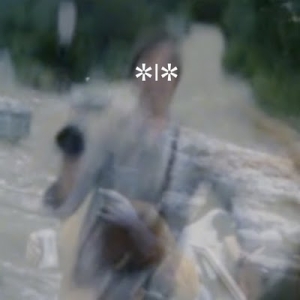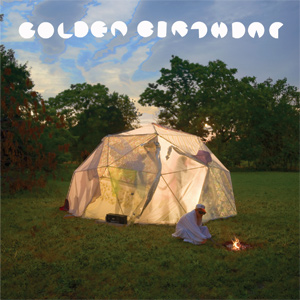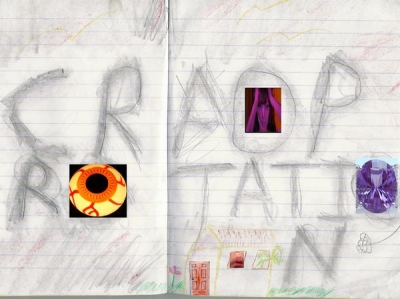Archive for February, 2010
New music and video from RxRy

The ever enigmatic “He/she/they/it(?)” responsible for RxRy remains unchanged in that regard, but a relatively consistent outpouring of new material – videos, music, release information, etc – gives the impression of an organized entity/collective with a reasonably mature sense of self. At the very least, RxRy seems to have unusually good people skills for having been unidentified so long.
RxRy – PRTSHDbngr
RxRy – SW CRSTL MLTS
RxRy – “Edvrd Rvrfy Guitr”
Yardvarb,
Dwight
Art of Jheri Evans

Jheri Evans is the discerning critic behind Get Off the Coast, a great music blog I’ve periodically mentioned or thanked for one reason or another in the past. He just let me know that he’s put together a portfolio site for his collage work, which currently graces his blog and will shortly appear on the packaging of GOBBLE GOBBLE’s next cassette release. He cites his primary immediate influences as “weed and cheesy horror/sci-fi/fantasy flicks.”
Take a looksy-poo.
Dwight
Hypermagic

Hypermagic is, according to the man himself…
…a clandestine indulgence in pure melody, nostalgia, simplicity and drunken bliss. The recordings are generally layers of guitar, voice, drums and a mess of cables, with the occasional theramin, organ etc…
He’s definitely not lying. Hypermagic creates a crystalline ambience in which, governed by that “simplicity,” everything runs slowly wild, tugging an attentive, meditative awareness from “drunken” mood to mood. Good fun.
Doodlebop,
Dwight
Golden Birthday – Infinite Leagues

Infinite Leagues, the debut LP from Chicago’s Golden Birthday and the first release from local label Rainbow Body Records, has gained some distance from its street date in October, 2008, but it must have been a great first step out the door for both band and label. Golden Birthday marries suggestions of funk and shoegaze with an odd danceable sort of dream pop and occasional glimmers of an older, more pastoral psych-folk, producing a dense atmosphere periodically broken by glitchy effects – which is hopefully not too intimidating a description. Infinite Leagues is generically varied, but the tone of (what sounds to be) analog recording gives it some consistency in terms of the ambience it creates, highlighting both the advantages and difficulties of “lo-fi” as a genre.
Having said all that, this is a compelling debut with hellaciously groovy packaging, almost on par with the decor of Rainbow Body’s website. Heck, even the music’s good – head over to the label’s (attractive) website, where they’ve kindly elected not to charge you out the ass for the CD ($10) and LP ($12) versions of the album. Until you’ve the time to oblige, consume:
Golden Birthday – Exposed
Golden Birthday – Something, Sometimes, Someshine
Probabibble,
Dwight
PS, seriously, check out Rainbow Body’s website. It’s so purdy I tagged this as an “Art” post as well.
Seamonster – Two Birds 7″

As of today, the second most snow-covered day for Royal Rhino Flying HQ in as many days, our first piece of vinyl is available: Seamonster’s gorgeous, five song 7″ single Two Birds, pressed gorgeously on equally gorgeous white (gorgeous) vinyl (g0rge0u5). It’s now available to preorder for $5, which’ll get you both the 7″, an email containing mp3s for (not just one, but) all of the songs that compose it, and a six-song bonus EP of remixes, covers, and (you swoon) the best b-side this side of the a-side. You can place your preorder, your friends’ preorder, and fight chaos in our Order section.
You’ll love this single and I can prove it:
Seamonster – Oh Appalachia
Seamonster – The Philosophy of Andy Warhol (Visions of Trees Remix)
Plus, here’s a great video for “Oh Appalachia,” also presented above for your consumption in mp3 form, directed by Chad Hartigan:
Cheerios x2,
Dwight
PS, only $5!
Video for Ty Segall & Mikal Cronin’s “I Wear Black”
Thanks to Claire Maire Films, Ty Segall and Mikal Cronin’s “I Wear Black,” from their 2009 collaborative 12″ Reverse Shark Attack, now has a pretty fucking great visual accompaniment.
Previously posted with my review of the 12″, courtesy of Kill Shaman:
Ty Segall & Mikal Cronin – I Wear Black
Ty Segall & Mikal Cronin – Ramona
Cheerios,
Dwight
Joni Judén//Visions of Trees – Thoroughly Interviewed

Some fun interviews with Impose Magazine, where Joni explains the burgeoning genre of “post wave” that’s poised to overtake “chill wave” and has already well outstripped “new wave,” and FADER, to whom he talks gender demographics within the band and the conceptual nativity of Sometimes it Kills. Plus, I’ll be damned if the above is not the coolest wallpaper to ever backdrop a photoshoot. At least the coolest wallpaper ever covered by a pink/purple filter in photoshop to make a good publicity shot… not to suggest it wouldn’t have been good without the filter. FADER thought well enough of it to have it at the head of their interview, so my bringing it up isn’t too huge a digression.
Toodle-pip y’all,
Dwight
Sometimes it Kills EP

Today, alongside snow showers and mountains of plowed ice and gunk here in West Virginia, Sometimes it Kills, the debut EP from London’s Visions of Trees, sees its official release. Thanks to said weather problems, shipping on some preorders has been delayed and new orders can expect a couple days of lag. I’ll try and think of a way to make up for the delay, but in the meantime I’ll shove off and leave in my place a more pleasant climatic vision conjured by History Painting:
“It’s early February. Snow has melted and the dull clouds are parting. Blue skies and sunshine reappear like a half-remembered video effect. Resolution up. HD. Serotonin floods back into hibernating minds. Spring is coming. Close your eyes for a moment & stand in the light. A passing car blares out indistinct murmurs of radio pop. The sound is a brief splash, speed-smeared and skewed, Doppler effect wonky & truncated. One bar melding idly into the next as displaced seconds & decades collide simultaneously as in the idle thoughts of a yet to be discovered particle. Today is the official release date of an EP called ‘Sometimes it Kills’ by London duo, Visions of Trees. This is that sound extended. Dreamt out in bullet time sonics.”
Hip,
Dwight
Crop Rotation

Crop Rotation is an anonymous London musician who constructs mosaics of sound that function as novel collections of symbols and ideas, layering samples, loops, and isolated bursts of speech into an experimental but incredibly catchy electronica. It’s music informed by a variation on the sort of pop sensibility that seems to be current among many musicians in both the American and UK club scenes, pioneering a more modern sound that keeps the weird credible, as it were, as well as danceable.
Here’s what the annual cycle of growing periods has to say about its songs:
The songs are constructed usually in a somewhat drawn-out associative process rather than a pre-mediated one. I like to think the central theme running through the music is a sort of ambivalent perspective towards the culture we’re informed by, the free interplay of words and symbols, and an attempt to articulate a beauty of juxtaposing familiar things in a slightly off-kilter way that tries to reveal the duality inherent in them.
Cheerios,
Dwight
PS, Crop Rotation has a political dimension! Woops, didn’t notice? Shite!
The Guardian on Apolitical “Indie Rock”
The Guardian recently posted an article titled “Blog rock lacks a political edge” complaining that contemporary indie rock has become apolitical. The piece ranges wildly across several fields without seeming to realize that a new topic has arisen, veering periodically from confused to obnoxious. The confusion is immediately evident from the profusion of titles and subtitles afforded it; “Beaches, forests, waves … just don’t mention politics” is its teaser on The Guardian’s music page, incinuating that politics have become taboo in what it’s title calls “Blog rock” and the subtitle “indie rock.”
Admittedly, the confusion is not entirely the writer’s fault. The real problem is in the collapse that united generically diverse strains of underground music into indie rock (strains that are disparagingly called “blog rock”). When musicians and writers use the term “indie rock” to refer only to bands that would check the box next to punk or grunge, etc, on their genre certificates, as the progenitors of independent music might have done, they’re saying something very different from bands who use “indie rock” or simply preface another genre with “indie” to indicate socioeconomic origins and genre. The distinction is most clear when “indie” is seperated from “rock,” but still “indie rock” is not the inflexible moniker that The Guardian’s article restrains to the stables of earlier independent labels like Merge and Sub Pop.
The article would be less objectionable if this difficulty were at least acknowledged. Instead, it trudges on into an obnoxious complaint that asks “why aren’t things the same?”
“Their fascination with the pastoral and apolitical is augmented by the other major strain in the US underground: nostalgia. With their intoxicatingly naive, redolent and melancholic music, the likes of Ducktails, Julian Lynch and James Ferraro retreat from the realities of modern life to the rose-tinted and half-remembered plains of their childhood, scattered with the imagery of Teenage Mutant Ninja Turtles, Global Hypercolour T-shirts, and red Lamborghinis.
So why is this happening? Kevin Drew of Canadian band Broken Social Scene articulated the current difficulty in songwriting in a recent interview with Pitchfork, saying that post-Bush, “now we’re in the ‘yes, we might be able to’ world”. There’s no machine to rage against any more, no one to be calculatedly hedonistic about.
Of course, you could argue that the lo-fi hipster slackers would never have raged anyway. And it’s easy to fire accusations of privilege as these (overwhelmingly white) musicians who comfort to look outside their immediate surroundings at an America of topographical majesty. Their use of lo-fi recording, once such an anti-corporate statement, is now often merely retro, or used to signify reality.”
The most obvious absurdity is placing an almost purely instrumental musician like Julian Lynch in the same line of indie rock bands that the article’s other targets, like Beach House and Surfer Blood, would emerge from. Is Lynch supposed to be more angry when he plays a sitar? Should his drone have a more nuanced political dimension? The whole article amounts to a charge that it is intellectually and musically lazy for musicians to not have a negative criticism offered through their music, and by extension it is wrong to be both engaged with an indie/underground culture and happy with the nature of your creative output. Placing Lynch in this group just emphasizes the confusion over terminology that grips this particular discourse.
Having said that, with a clearer understanding of the term “indie rock” in hand, the article has a legitimate social comment to make. Unfortunately, it’s already been made, the point is self-evident, and the article doesn’t even repeat it. Why in the world should bands like Beach House or Surfer Blood offer political complaints in an America where political injustice is less overbearing to the average American involved in music? Unless unemployed former middle-class Americans who lost their job in the economic downturn or homosexuals in states that ban gay marriage become motivated to write “indie rock,” why should it have a political program?
The article naively asks “why is this happening?” without actually considering anything of relevance to what more properly worded would be a legitimate question. In this treatment, the question becomes muddled by language that changes it into a petulant “why?!” with no reasoned foundation. It’s obvious why it’s happening, and criticizing musicians that have no real generic affinities with what the author understands “indie rock” to be makes his complaints about “nostalgia” feeble.
Phoit!
Dwight
PS, thanks to Louis at Salad Fork for mentioning the article.